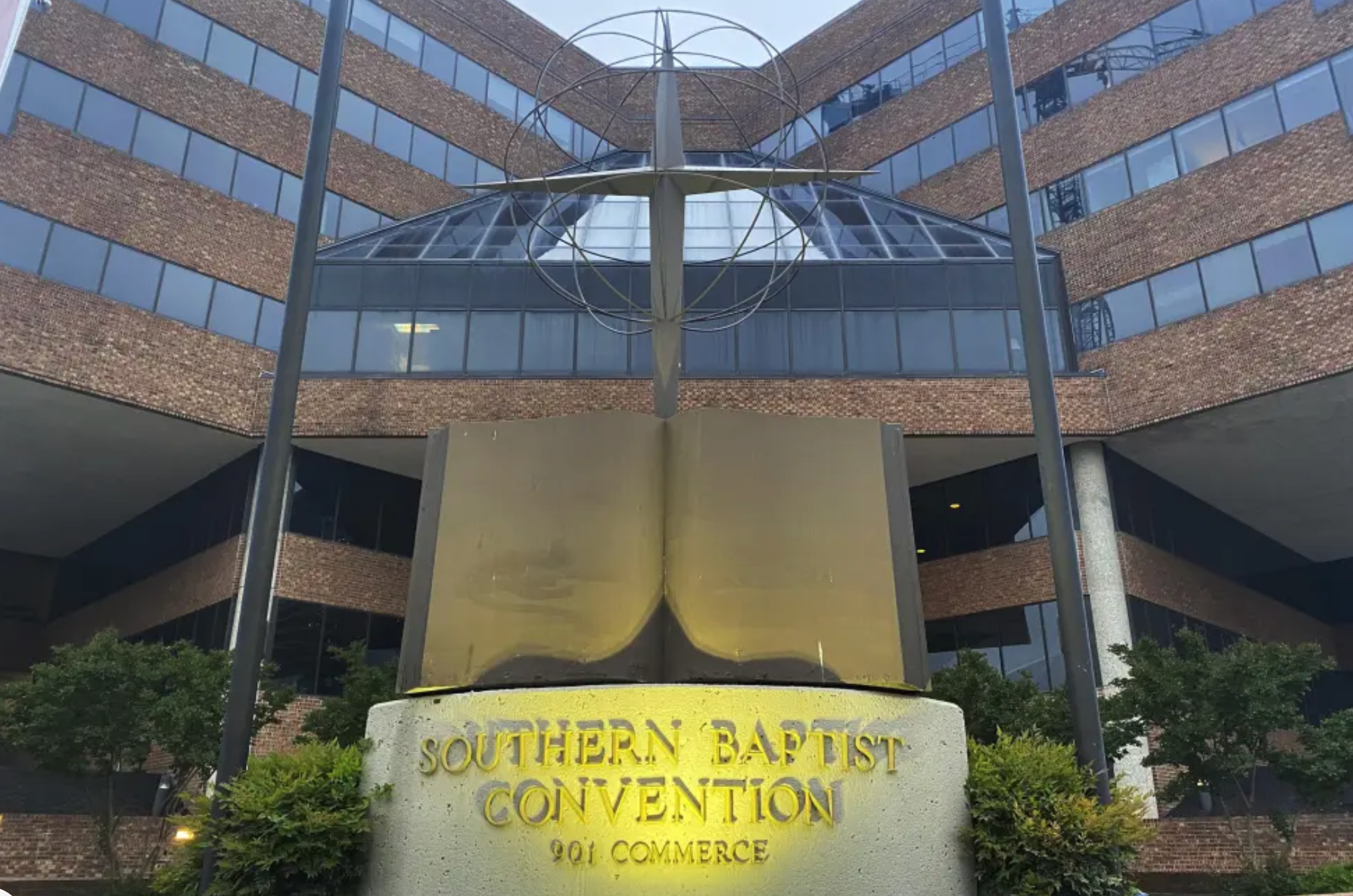It was announced recently that the Southern Baptist Convention has about thirteen million members and is the second largest group of Christians in the world. Whether all of these people can be located or not is another question, but it sounds good to say that we have thirteen million members. The reason it sounds so good is that we too, have adopted an approach which the world has sold to us and by which our own people are programmed. The idea is that bigger is better. The larger something is the better it must be. The more something costs, the better it is. There are phone companies which are now installing weights in their equipment in order to make it heavier. Why? Because the buying public believes that if something is light it is cheap, but if it weighs more it must be better quality. In other words, it’s the same old, bigger is better idea.
The average church in the Southern Baptist Convention is not big. In fact, the average church has something less than one hundred people in Sunday School and not many more than that in church services. We are a convention of small churches. It would be good to discuss what this actually means to us as a denomination. Some of the best churches are small churches while some of the poorest examples of good churches are those which are larger. Some of the very best preachers are in small churches. They are able and capable expositors of the Word of God. They can “preach the stars down” but they will probably never be heard at a convention or a preaching conference because they are in a small church and surely the best preachers come from the larger churches in metropolitan areas.
Let’s be honest about this situation. Many of the men who are the pastors of large suburban churches get a lot of praise for being the leader of a “growing and blowing” situation. Often, they are far less talented than some men in smaller churches. Now, we would all like to be fully assured that the Holy Spirit has placed every person in the place in which he is serving. If one believes that then they are a good candidate to buy Niagara Falls. Most everyone can recall those men who have always seemed to be called to the places which people consider to be the “prime” spots. The fact of the matter is that they have some well-placed friends and acquaintances who always have the means to make sure that their name is brought up to the “right” people at the proper time with the goal of having them called to that particular church. Now, there is nothing wrong with employing friends and acquaintances to come before a church, but somehow the convention leadership seems to forget how it all happened. These men are touted as brilliant, articulate and refined. They always seem to be included as a speaker at the biggest conferences and conventions. Their churches are praised for rapid growth and development. At the same time, however, there are able men in smaller churches in smaller towns who are actually doing a far better job at winning people to Jesus and building a church with various programs. They however, will never be heard from. The convention is too engrossed in praising the men who had more baptisms, collected more money, built more buildings and spoke at more conventions. There is a tendency in our Southern Baptist Zion to focus on bigger being better and more being better.
There are many churches that, if located where the ones are which are always praised, would be doing even better than they are. Mega churches have the luxury of being in the midst of hundreds of thousands or millions of people. They should be having more people in Sunday School and church. They should be building more buildings, but these kinds of things should not be the absolute measure of “success.”
I have done some research and compared the results from the ministries of some mega-churches located in large suburban areas with the results from smaller churches in small to medium sized cities. I have found that many of the smaller churches are really doing much better than the larger ones when it comes to measuring according to the most widely accepted standards such as baptisms and church growth indicators. Percentages don’t lie and are not subject so much to “ministerial estimations.” An example is in order. If a church in a large city has say, one million from which to draw and they are averaging having three thousand in Sunday School. Just how well are they doing percentage wise? With one million people from which to draw they are actually having only three tenths of one percent to attend their church. But, much praise and plaudits will be heaped upon the church and its pastor for doing such a wonderful job since three thousand people are attending there. But, what about the smaller church in a much smaller population center? Suppose that there are only fifty thousand from which to draw and the church is running five hundred in Sunday School. What is their success rate? It is actually one percent or seven tenths of one percent better than the megachurch located in the larger urban area. Usually, the baptisms show a better ratio also, but no one seems to notice.
I think it would be good to state that I know of no pastor who is in a depressed state of mind because he is not being recognized. We do what we do for the Lord and that should be our only motivation. But, I certainly do not think that our convention leadership should be so short sighted as to focus on the larger church located in the urban center which has so much more to draw from and so many more opportunities for rapid growth. In doing so they certainly are furnishing no encouragement for the pastors in the smaller towns and cities who are doing such a wonderful job. Since we are a convention of small churches, I think that we should focus more on them than we do. Why do we never hear one of the gifted smaller church preachers at our conferences and conventions? I know from listening to pastors that many of them long for a fresh approach from someone else. Give me the simple, humble servant who is simply focusing on doing what is right in God’s sight. He will be a better pastor and preacher because it will be God who rewards him and not people. He won’t be worried about how he looks but about how God sees him. He is a man God can truly work through.
This “bigger is better” mindset is leading many pastors and churches to do things in order to attract the world’s crowd. Got to be bigger in order to give the image of being better. Remember, this mindset comes from the world. It is a materialistic and worldly frame of thought and the idea of “success at any cost” is attached to it. The church must take extreme care not to become like the world in order to attract a large crowd of people. If we adopt the world’s methods then we also destroy our uniqueness and we lose our real spiritual weapons, our testimony and witness. The worldly crowd is only too happy to find a church which will modify itself and allow them to continue in their lifestyle unchallenged. They love it when the church lowers the bar in order to get a larger group of people to attend. And remember this; once the bar is lowered, it is extremely hard to raise it again. The world’s crowd will fight a long, viscous fight to keep from giving up what they have won within the walls of the church. They are not really looking for a church which will lead them into righteousness but one in which they can feel good about themselves. I think it would be good for us to remember that it is not how you feel about God that counts, but how God feels about you that counts. And, He feels good only about those people who are covered by the Blood of Jesus. Many of the worldly people leave church feeling good about themselves because they feel some requirement has been met. They think that because they feel good, then God must feel good about them too. This is not always correct. Our goal should be that our lives, worship and all, should be the kind that God looks at and is satisfied with what He sees.
One day Jesus was telling those following Him about the realities of the Kingdom of God. He was informing them in a deeper way as to how God is involved in drawing a person to Him. When Jesus was healing the sick and doing other miracles it was easy for the large crowds to follow him and become awestruck over the things He was doing. There was nothing required of them but to be in attendance and to be amazed. They were where they were because of how it made them feel and because of the excitement He created wherever He went. But, he thinned out the crowd when He told the true realities of the Kingdom of God. We find this story in John 6. Jesus even asked the disciples, “Will ye also go away?” Peter gave the proper answer when he said: “Lord, to whom shall we go? Thou hast the words of eternal life.” The same will happen today. If a preacher or church stands for what is right and Biblical, they will thin out the crowd because the world does not want that kind of commitment required of them. If it all goes any deeper than their feelings and emotions then it is too much for them. I think Jesus knew what the group of people following Him was really made of and He knew that when He began to tell them the deeper things of the Kingdom, He would wind up with only those who really meant business.
Let me say that I do appreciate those who are doing God’s work in an honest and forthright manner whether they are in a large, fast growing, urban church or whether they are in a small town church. This chapter is not against the larger churches or their pastors, but it is focusing on our own tendency to buy into the “bigger is better” line. It has been my desire in stating my views on this matter to try to help us remember that the largest part of the work is being done by smaller churches and pastors who will never be seen preaching at a convention or heard from in any kind of public way. Even within our own churches we must always remind ourselves that bigger is not always better. The passage of scripture in which Jesus told Peter, “Upon this rock, I will build my church” should remind us of just who is doing the building. We deserve no credit for without the Holy Spirit drawing people and without the Lord building the church, we would be of all men most miserable.









